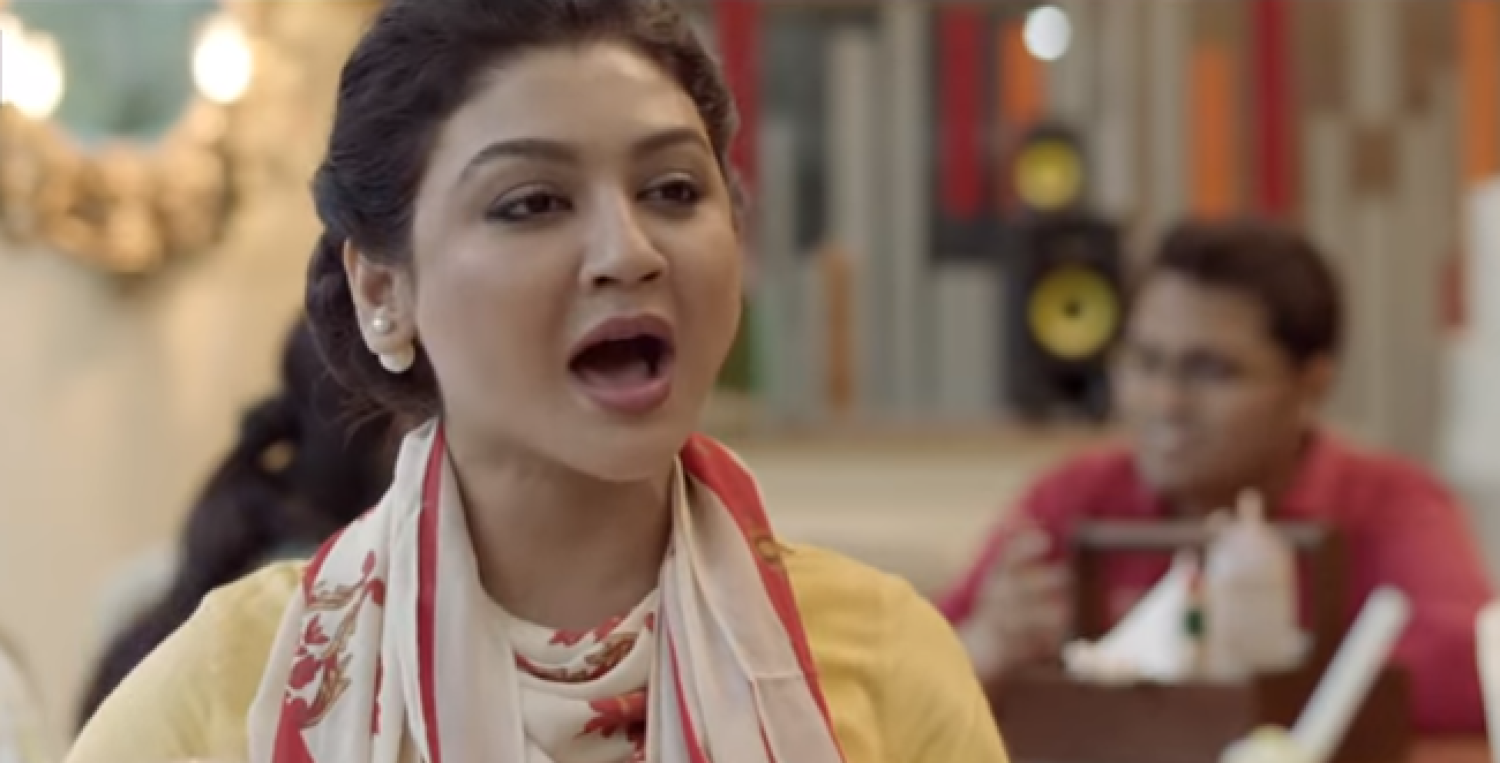Actress Jaya Ahsan speaks about her preparation for the role of a speech therapist in Konttho and the reaction of the medical fraternity and patients to the film.
Have almost done a thesis on laryngeal cancer: Jaya Ahsan on Konttho
Kolkata - 17 May 2019 7:00 IST


Roushni Sarkar
Originally from Bangladesh, Jaya Ahsan has become one of the more sought after actresses in Bengali cinema since her heart-wrenching performance in Kaushik Ganguly’s Bisorjon (2017).
The actress featured in a pivotal role in Shiboprosad Mukherjee and Nandita Roy’s recent release Konttho (2019), a tale of a laryngeal cancer survivor who does not give up after having his voice box removed and learns to speak through his œsophagus.
Ahsan plays speech therapist Romila Chowdhury in the film. She not only vows to make RJ Arjun Mullick, played by Mukherjee himself, learn to speak again, but also makes sure that he returns to his favourite job.
In a candid conversation with Cinestaan.com, Jaya Ahsan described how she prepared for the role and how she has been inspired by the reaction of the audience to the film. Excerpts:
How did you prepare for the character of the speech therapist in Konttho?
See, people who have had their voice boxes removed speak with the œsophagus voice; however, I do not have such a condition and hence it was quite difficult for me to bring out that modulation. I had sessions with speech therapist Somenath Mukherjee and have done [a lot of] research on laryngeal cancer. It was almost like completing a thesis!
Also, I spent time with cancer survivors, their families. I had to have a complete sense of the trauma they went through after they lost their voices. Since I was not playing a regular character and was enacting a speech therapist, I had to also be aware of various medical terms and could not afford to make any mistake regarding that.
Initially it was difficult to speak with the œsophagus voice, but then I could adopt it. I had to do it twice, while shooting and while dubbing.
How long was the process?
I started learning the technical aspects for the character of a speech therapist with a series of sessions with Somenath Mukherjee before the shooting began. That I would be doing Konttho was decided long back. I was offered both Paoli’s [lead actress Paoli Dam's] and my characters. I chose this one as I found it to be much more challenging and I had never played a doctor or a therapist before.
In the second half of the film your character seems to get more prominence than that of Shiboprosad Mukherjee. What is your take on that?
I think it was required for the progress of the story. A laryngeal cancer survivor goes through immense trauma and frustration and to overcome that, the patient needs a strong support system. In Arjun’s family, Paoli has played the pillar and then I had to be his aide. It was impossible to take the journey ahead without the character of the speech therapist. I did not have much presence in the first half, but in the second my character evolved with the progress of the journey.
Did the mass appeal of the film determine your performance in any way?
Windows Production House’s speciality lies in the way they choose a delicate subject and turn it into a story for the masses. Every artiste wishes to do inspiring work on life and human relationships, but few can achieve the goal.
Shiboprosad and Nandita can easily bring the masses and the critics on the same line. The story deals with the serious issue of cancer and it could have been quite a morbid film; however, they have successfully made it appealing to the audience.
Many survivors, who had already given up on life, called me and expressed their gratitude for inspiring them through the film. The film was screened at the Devi Shetty Hospital. Dr Shetty himself congratulated me for my work. Another oncologist remarked, “I have already given you a certificate.”
The patients cried profusely after watching the film. Some of them even told me they might have lived longer had they watched the film earlier. These are the rewards that we look for while doing our work.
Anyway we always want to give of our best for any performance. The reactions of the audience have inspired me a lot. I feel, we have a certain responsibility to society and that is how we want to make our mark, through our work.
The speech therapist also becomes emotional at the end of the film and grows attached to her patient.
Though it is quite rare, I feel every doctor should be personal with his or her patient. When an aged cancer survivor needs to learn to speak the basic letters and words from the very beginning from a speech therapist, they face various ego problems and that is why a speech therapist needs to turn into a friend to help him or her get over those crises. The therapist needs to get close to the patient. Every treatment has different methods and, therefore, I feel the portrayal of my character has been done quite logically.
How was Shiboprosad Mukherjee as a director and an actor?
In this film, Shibu-da was more of an artiste than a director, while Nandita-di was more engaged in the direction part. I would give him more marks as an actor for this particular film.



